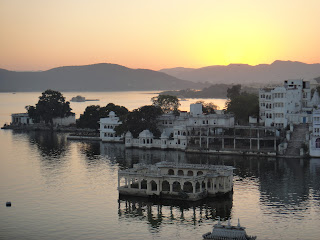The blog you are about to read probably won’t be very satisfactory...
Have you ever been on holiday that doesn’t feel quite like you had imagined? I have. Something my friends and I learned and used a lot when we did door to door sales a few years ago is the “expectations gap”. It is the gap between your expectations and reality.
The ethics of triggering an expected reality to enhance a person’s later appreciation of say…a blog, are arguable but beside the point. Let’s get back to that weekend you took off where the church wasn't as beautiful as your guidebook led you believe, the sky not as blue, the room not as new, etc.
I have had this feeling at some points in my past travels and tried to understand why… I keep reminding myself how fortunate I am to be on such an adventure. I am sharing it with my favorite person and we have had less than 5 days of rain in the past 8 months of our lives. Not to mention the unique places, people, foods, etc…In a nutshell, I am spoiled. So what could be missing?
I love learning. My favorite way of learning is reading books! I’ve found that the place I am greatly influences the book I choose and the light in which I apprehend it. And in turn the books I read excite my imagination about new places I want to understand. I think turning pages in an unfamiliar setting makes me more receptive and in touch with my emotions therefore more prone to appreciate my surroundings.
So I now make more time for picking and reading books while I am travelling. Some people could argue that you are missing out on the place you are by reading a lot while on holiday. If you spend the week in your room reading the Harry Potter series this is true. However I found reading in Udaipur made me more in touch with the city, more appreciative of its architectural wonders, street action and atmosphere and eliminated any expectations gap. You start noticing lots of little things that didn't mean anything before…

Next time I go on holiday I will ask myself what books turned my imagination and curiosity on and why. There is no rule to choosing my next destination. My parents dragged me on walks their whole life. I recently read about Van Gogh’s new vision of Provence and how it transcended his predecessors approach to depicting it. I would now love to take a walk down the Van Gogh trail. It visits the main places the painter chose as symbols of his new home, compare them to his paintings and analyze what he decided to emphasize as representative of the place. See Mom, Dad, your efforts finally paid off …
 If I am a fan of Jet Li movies a boxing school in Bangkok will be a kick ass holiday for me. If I am really into Asian food why not volunteer as a language teacher at a school in Laos for a couple weeks. The kids will teach you the local names of the ingredients and teach you to master the wok and chopsticks!
If I am a fan of Jet Li movies a boxing school in Bangkok will be a kick ass holiday for me. If I am really into Asian food why not volunteer as a language teacher at a school in Laos for a couple weeks. The kids will teach you the local names of the ingredients and teach you to master the wok and chopsticks!
My only rule is: No plan. Because planning means building expectations. Take the time you need to really see, live and breathe the place you are in. And follow your instinct. You might find you don’t like it but you will hopefully be more aware of why. You might also never want to leave.

What I am looking for in my travels is happiness. And I've found the best way I found to do that is to pull on the thread of my own curiosity and follow it where it leads me. I finally understood that what matters isn't the destination it's the journey. To compensate my inability to express myself, here are a few wise words that sum up my rambling.
“There are no foreign lands. It is the traveler only who is foreign.” Robert Louis Stevenson
“The use of traveling is to regulate imagination by reality, and instead of thinking how things may be, to see them as they are." Samuel Johnson
Safe travels,
Will














